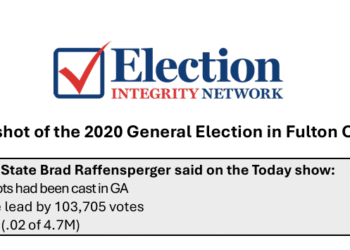Steve Bannon Saturday Series, Speeches, Interviews, and Documentaries
Steve Bannon’s commentary in the BBC News 2019 interview is a tapestry of ideas, but at its core lies a determined advocacy for economic nationalism and a critical examination of the globalist elite’s agenda for humanity. In the interview, Bannon champions economic nationalism as a solution to the working class’s challenges, particularly in the United States.
“The mainstream media… are basically the Communications Department for the global Elites,” Bannon said in the 2019 BBC interview.
Bannon’s vision intertwines economic nationalism with a quest for dignity, self-worth, and community. He advocates for policies that prioritize the interests of ordinary citizens, challenge the influence of globalist elites, and seek to redefine the political landscape in favor of populist movements. Through his commentary, Bannon urges a reevaluation of traditional political paradigms and a renewed focus on the well-being of working-class communities.
“This is more than just economics. It’s about dignity, self-worth,” Bannon said.
He argues that this ideology can restore dignity, self-worth, and a sense of belonging within communities, emphasizing its potential to improve the lives of all Americans, irrespective of race, gender, ethnicity, or religion.
That is interesting coming from the man some people compare to a racist Darth Vadar.
Central to Bannon’s discourse with the BBC interviewer is his critique of the media’s role, which he appears to see as complicit in pushing a narrative that undermines economic nationalism. He accuses mainstream media outlets of promoting a globalization project prioritizing a few’s profits over ordinary citizens’ well-being.
“We are in a new age. Protecting the Judeo-Christian West is worth defending,” Bannon said.
Bannon, in the discussion, contends that by portraying economic nationalism as inherently divisive or racist, the media obscures its true intent and effectiveness in uplifting marginalized communities.
Bannon staunchly defends President Trump’s policies as examples of economic nationalism. He highlights initiatives aimed at curbing illegal immigration and renegotiating trade deals to safeguard American jobs and industries.
“By limiting Mass illegal immigration, we’re starting to see wages rise,” he said.
Bannon attributes Trump’s policies to historic lows in black and Hispanic unemployment and the beginnings of wage growth among the working class. He dismisses accusations of racism or xenophobia, asserting that these achievements validate the efficacy of economic nationalism.
Bannon criticizes left-wing opposition for their reliance on identity politics and their vilification of economic nationalism. He argues that focusing on issues of race, gender, and ethnicity detracts from addressing the economic challenges faced by ordinary Americans. Bannon sees economic nationalism as a unifying force that transcends traditional political divides, advocating for a populist movement that prioritizes the interests of the working class over partisan agendas.
Beyond domestic policy, in the talk, Bannon weighs in on geopolitical issues, particularly in Europe. He applauds the rise of populist movements in countries like Hungary and Italy as expressions of national sovereignty and rejects accusations of xenophobia or authoritarianism against these leaders. Bannon perceives these movements as part of a broader global shift toward populist nationalism, away from the traditional left-right paradigm.
Despite controversies surrounding Bannon, his narrative reflects a deep-seated belief in the principles of economic nationalism and justice. He appears to see these ideas as a means to address societal inequities and restore national sovereignty. While his rhetoric may hurt the feelings of the corporate media, Bannon remains a prominent voice in shaping discussions on globalization, nationalism, and the future of Western democracy.
Watch:




